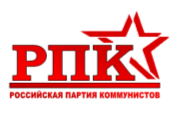|
Political struggle of Communists against Nationalism
News from Bosnia and Herzegovina
It is well known that nationalism is dominant political ideology in Bosnia and Herzegovina. Although influence of three main nationalist parties which started civil war (Serbian Democratic Party - SDS, Party of Democratic Action - SDA, Croatian Democratic Community - HDZ) has been diminished very much during last five years, nationalism is still dominant, not just because of influence of these political parties, but also because of the fact that all other parties are also nationalist ones.
However, at this moment there is again coalition government of these three parties on state level and they also rule in entities and cantons. One of the newest excesses in organization of nationalist parties happened in small place called Janja, near city of Bijeljina, in north-east of Bosnia. Janja is a place where around 10,000 Boshniaks lived before the war. All of them had to go during the war as a result of ethnic cleansing. Serbs cleansed by the Boshniak nationalists from SDA were moved in their homes. After the war, probably around 6 or 7,000 Boshniaks returned to their homes and many Serbs remained in newly built part of this place. So, Janja became a multiethnic place. Serbian and Boshniak children attend one elementary school. This fact has been appropriate indicator of inter-national relations in this part of Bosnia. Although there have been few excesses in the very place, situation stabilized in most degree during last few years.
Unfortunately, new problems occurred at the beginning of new school year, when extremists from the Party of Democratic Action (SDA) organized demonstration of Boshniak children and parents with demands for separation of Serbian and Boshniak children in separate classrooms, employment of more teachers of the Boshniak nationality, different educational programs for following subjects: history, geography, domestic language and religious classes. Nationalists also insisted on their old thesis that Serbs and Boshniaks speak two different languages (Serbian and Bosnian), so that classes should be organized in accordance to this.
Demonstrations in Janja were new opportunity for both Serbian and Boshniak nationalists to "prove" validity of their ideology. New tensions arose in Bijeljina. So, resolute political reaction was needed. Only the Workers' Communist Party of Bosnia and Herzegovina reacted this time. We condemned attempts of Boshniak nationalists for segregation in schools on national or any other basis. We emphasized our attitude that people in Bosnia and Herzegovina speak the same language although every nation can call it according to its name. There is no any reason and excuse for segregation of children into separate nationally clean classrooms. That would be serious stroke for progressive attempts to build secular, multicultural and multiethnic society in Bosnia and Herzegovina.
Although the Boshniaks are not equal with the Serbs in Bijeljina, what we emphasized more than once, these demonstrations were not the solution of the problem at all. First, SDA demanded appointment of its candidate for the position of principal. Secondly, the school board and the principal accepted their demand for segregation of children and also it was decided that books from Tuzla, city where the Boshniaks are majority and have their government, come for children of the Boshniak nationality. So, now we have situation that Serbian and Boshniak children are separated in their classrooms and that they learn history, geography and domestic language according to opposite educational programs.
Municipal leadership of SDA in Bijeljina attacked our party in local media and we also had a chance to say what we had. First of all, we condemned these attempts (unfortunately, successful) for national segregation of children in a multiethnic elementary school. We accepted demand for employment of more school teachers who are of Boshniak nationality, but we strongly opposed attempts for political misuse of children and attempts for insemination of national hatred through educational programs created by Serbian and Boshniak nationalists. We also condemned attempts of all nationalists to create opinion that people in Bosnia and Herzegovina speak with three different languages (Serbian, Bosnian, Croatian), which is only attempt to multiply objectively existing differences. The voice of communists this time was lonely, but it also showed which political force is capable for solving one of most important issues in Bosnian society.
|

